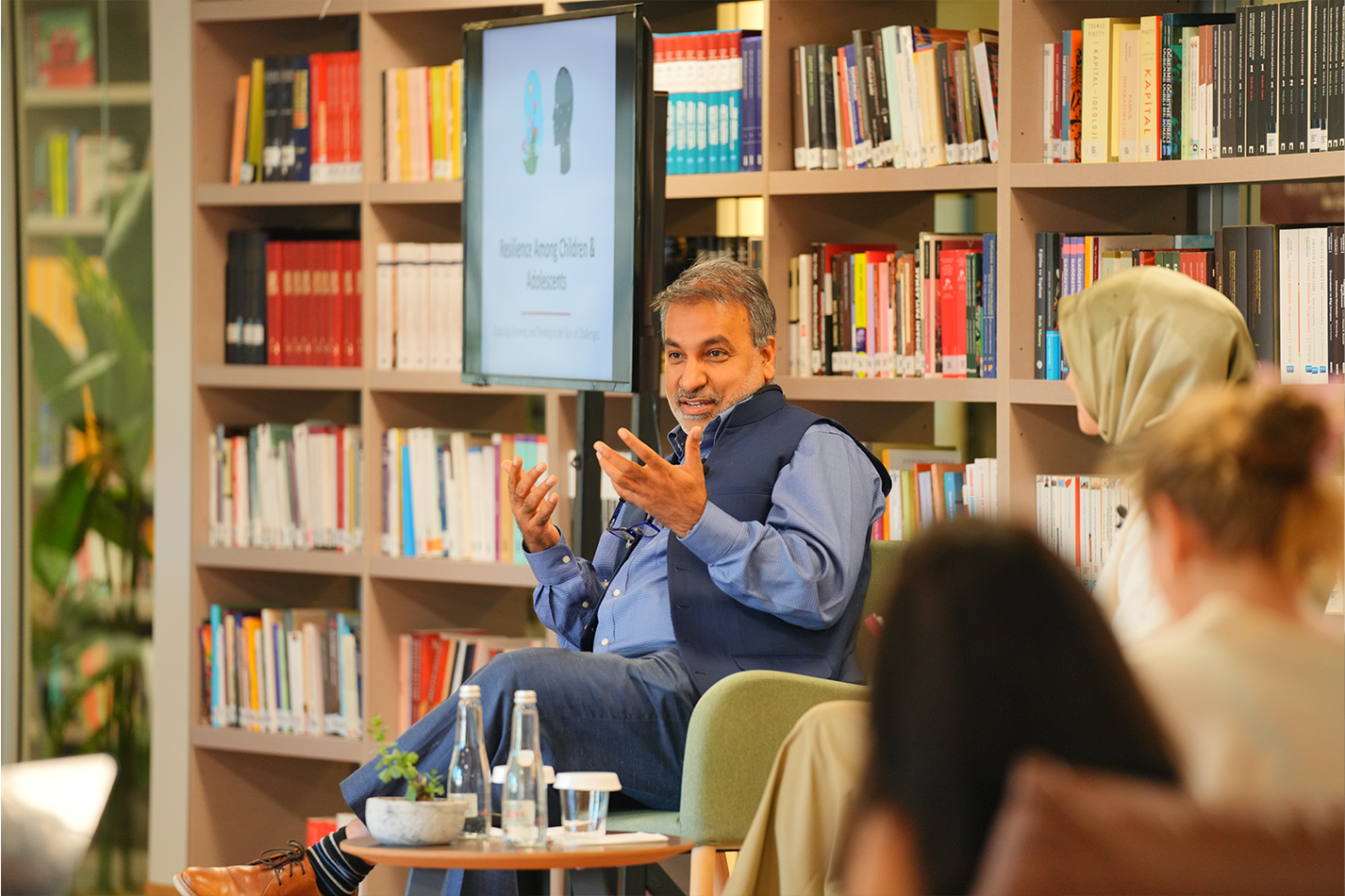
“Psychological Resilience in Children” with Tayyab Rashid
As part of its Global Reflections series, Institute Social recently hosted clinical psychologist Dr. Tayyab Rashid from Harvard University. Dr. Rashid is a leading expert with over 20 years of experience working with children and adolescents struggling with major depression, severe anxiety, emotional dysregulation, and suicidal tendencies. He is widely recognized for his work on psychological resilience in children, focusing on the development of emotional, social, and moral strengths that help young people cope with life’s challenges.

In his remarks, Dr. Rashid pointed out that moral values once considered almost taboo are once again gaining relevance. Around the world, he noted, schools are beginning to invest not only in students’ academic performance but also in fostering care and compassion. For him, knowledge and skills on their own are not enough to sustain a person; qualities such as kindness, solidarity, and spirituality builds true resilience and strengthen one’s ability to face life’s challenges.
Resilience, he explained, is not something that can simply be turned on or off. “The world will never be free of crises,” Rashid said. “We must equip our children not only with scientific knowledge but also with human strengths. That is what resilience truly means.” He added that giving children too many privileges prevents them from experiencing the pains and difficulties of life: “There is no single recipe for preparing children for life, but there are some guiding principles: allowing them to think independently, recognizing fear as a meaningful emotion, not shying away from guilt, and giving them space to learn from mistakes.”
According to Rashid, one of the greatest risks today is that children live under constant pressure to move quickly—whether from homework or social media. This relentless pace, he noted, disconnects them both from nature and from their inner worlds: “Slowing down, noticing, and feeling are what truly build human resilience.”
The discussion also touched on the psychological and social factors that shape resilience, the supportive role of families and schools, and ways to build resilience at the community level. The session concluded with a Q&A segment where Rashid responded to participants’ questions and offered practical recommendations.
For more information, you can watch our video:
https://youtu.be/nFN3hUX8x94?si=OBngK3t-X4oPbaR0
